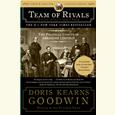Book Excerpt: The Railroad As Art
Real Work
All my life, I believe, I will feel that shock, that force, rush through my hands, feel it travel up my wrists and past my elbows and into the tensed muscles in my neck and face. I even dream about it, decades later, and wake with my hands shaking. I bring them to my face in the gloom of an early morning, fearing the worst, to find them still there, trembling but not twisted or truncated or misshapen. Sometimes when I am writing, my fingers freeze above the keys, and I think about it—how even this easy, mechanical thing would be impossible for me if the man in the khaki work clothes had missed even once. But he never missed. I pound home one more key, then another, clumsy fingers searching for the words, and know I will never be half the man he was. He swung that sledge at the end of the chisel I held in my unsteady hands, and he was dead solid perfect a thousand times, ten thousand, more. All I do is tap a damn key, and I rarely get it right the first time.
“What if you miss?” I asked him, just once.
“I won’t miss, son,” he replied.
I held that chisel for the first time when I was eleven, aiming it at the place where the black rubber of a big, dump truck tire joined the steel wheel. It took the force of a sledge to break that seal on a flat tire, and I did it, among other things, till I was eighteen, till I finally straightened up, dropped that chisel in the dirt, and got myself a necktie job.
 The man in khakis, my uncle Edward Fair, gave me work all of my young life, but it was hard, dirty, sometimes dangerous work, and I forgot to thank him, across those years, for the money I made. I wasted it on rolling death traps and peroxide blondes, on honky tonks and rum and cokes and snap pearl button shirts—actually, I guess I didn’t waste a damn dime. But along the way he gave me some free advice, and I have thanked him, many times, for that.
The man in khakis, my uncle Edward Fair, gave me work all of my young life, but it was hard, dirty, sometimes dangerous work, and I forgot to thank him, across those years, for the money I made. I wasted it on rolling death traps and peroxide blondes, on honky tonks and rum and cokes and snap pearl button shirts—actually, I guess I didn’t waste a damn dime. But along the way he gave me some free advice, and I have thanked him, many times, for that.
Hang some of those tools on the wall, he told me, some of those chainsaws or chisels or big yard forks that would hold seventy pounds of rock in a single scoop. Hang ’em up high so you can see ’em real good, he told me, after you finally get yourself an easy job, and every time you feel like griping, take a long, hard look.
I never did hang a sledge hammer on the wall, but I do think about what he told me, when I start feeling sorry for myself, and sometimes I am a little ashamed and sometimes I laugh out loud.
Those of us who write for a living want the rest of the world to think it’s real, real hard. We invent myths about it, to make it seem like man’s work. I have always loved the stories about fighting writers, carousing writers, whiskey drinking, bull fighting, foxhole diving, swordfish catching, senorita romancing, big game hunting, husband defying writers, and tell myself that I belong with them, and not with the fretting, pencil neck writers who need to see their therapist twice a week to connect with their inner child. But the toughest writer I ever met, I ever heard of, would have lasted about a week on my Uncle Ed’s crew.
It makes the fans of such writers angry, to hear that their storied writers would not match up against a plain ol’ redneck. But really. How long do you think Hemingway would have lasted against a roofer with a tire iron?
I have never considered myself a tough man, within the fraternity of working men, but I know I am one when I stray outside it. I owe my uncle for that toughness, for what there is in me. But mostly what I got from my Uncle Ed was perspective, enough of it, one shovel full at a time, to realize how good I have it now, how easy it is—at its hardest—to do what I do.
My Uncle Ed was his own boss. He ran a bulldozer and a front-end loader, at the heart of his operation, cutting roads, clearing lots, grading for construction. I have seen him knock the top off a mountain, or dig a lake, in the space of an afternoon.
He needed us, my brothers and me, for the pick and shovel work, for the tight places the machines could not get into. We dug water lines, ran chain saws, loaded pulpwood by hand, for minimum wage.
The first job I had with the crew, when I was about ten years old, was cleaning the mud and roots from bulldozer tracks. The giant yellow machines would growl and churn through the red clay, unstoppable, until their tracks got all gummed and choked up with a debris. The operators would stop them, impatient, and I would gouge and hack at them, until the tracks were free.
It paid nearly nothing, not even minimum wage, but it was my way into that fraternity, a circle of men in training where you settled your disagreements with your fists, or a broken-off tree limb, or whatever you could find in the dirt.
And the best that could ever happen to you, I once believed, was to be the man on the machine.
We would have resented my uncle, sitting up on that big machine, so high and mighty, if he had not on a regular basis crawled down there in the muck and dust with us, and put us to shame. He could do more, faster, than most of the young men on his crew. The shameful part was that he outworked us on damaged legs. A car had crushed him below the waist when he was still a teenager himself, and his legs were held together with steel rods. It was hard to complain, much, when a man with a built-up shoe was kicking your ass, was loading more rock, digging more dirt, piling up more pulpwood.
But still, it was hateful work. It did not teach me character, just toughness, taught me that I could stoop lower and strain harder than most people were willing to.
The worst of it was the pulpwooding. I had never met a pulpwooder who had all his fingers and toes, but it had to be done, when we cleared land for houses or roads. To leave the pulpwood piled on the land would be like burning money on the ground.
We did not fell the trees. The bulldozers did that, knocking the pines down into a morass of stumps, trunks and interlocking limbs. We waded into it the best we could, big chainsaws bucking in our hands, and tooks off the limbs, then cut the pulpwood into logs.
The biggest problem was the footing. The trees were slick with mud, and piled atop one another, limbs twisted back under thousands of pounds of pressure. At best, a tree would just come alive as you straddled or stood on it, bucking, heaving or twisting, rolling you underneath.
At worst, a limb as long a transfer truck and as big around as your waist would just whip free, suddenly, and bash your brains out.
I was hit so hard, routinely, that I had to think a minute to remember my name. Once, working near my brother Sam, a limb sent me crashing into him, my saw buzzing, and I came within inches of opening him up like a fish.
You worked at a run, because every minute the big machines idled nearby, unable to get at the dirt under your feet and under your trees, money was trickling away. You did not stop except for a few seconds, to wipe the bits of bark from your eyes. You did not even stop for the snakes.
Despite what the timber companies want you to believe, not very much lives in a pine barren except rats and snakes. Old growth timber, a true forest, is home to all kinds of living things, but more and more of Alabama is under pines, planted to control erosion after clear-cutting, and nothing warm and fuzzy likes to live in the gummy, sappy, acid-rich world of pines.
The rats flee, when the trees come down, but the snakes just get belligerent. I don’t know how many dozens of rattlers I faced down in that mess of limbs and roots and mud, but usually with the same outcome.
The problem is, you can’t hear a warning, can’t hear them rattle over the noise of your saw. You just see a movement, a limb that writhes more than it should, and you hold out the saw or swing it in a slow arc, and the snake can’t resist. It strikes out at the whirring teeth, and its head disappears in a spray of red.
Once the pulpwood is cut, you pile and burn the limbs, so the trucks can get into the woods close to you, and you start loading the logs by hand. The skinny ones are light, and you throw them around, and the fat ones—hundreds of pounds apiece—are light, too, because you are tougher than anybody else, and you pick up pine logs that weigh more than you, and heave them onto the trucks.
At the end of the day you look barely human, specked head to toe with bark, sap in your hair, grime in every crease of your skin. You don’t make enough that day to replace the shirt and pants you ruin in the trees.
The next day might be easy. You may just have to haul some dirt, may just have to coax the old Chevy dump truck up the side of a mountain, and hope its bald tires and brakes will last till you get back down again. Or it may be twelve hours on the end of a shovel handle, or pick.
I had a friend once who was always after me to go to the weight room with him, and I would laugh out loud every time.
The most ridiculous work was on the end of a yard fork. It was about half a man long, with thick iron tines. It looked like a giant salad fork. With it, you scooped up the rocks, roods, and mud clods that were raked or dragged on landscapes, and either piled it into a wheelbarrow or heaved it over the side of a dump truck.
It was ridiculous because of the height of the truck. I was not tall enough, and the fork was not long enough, to allow me to heave the load of rocks or clods over the side. I had to get a running start and jump, hoping the sheer force of it would carry me high enough, with my seventy-pound load, to heave it over the side of the truck. If you could leap high enough, your load cleared the lip of the truck and you banged, hard, into the iron bed.
If you did not, you banged hard into the iron bed, and seventy pounds of rock and mud clods showered your head. At the end of those days, you felt like you had been drawn and quartered.
But this is just whining. It did not kill me, though it killed others.
I know that not just any fool can be a writer. But I also know that not just any fool could get that yard fork over the lip of that truck.
I know which makes me prouder, now.


